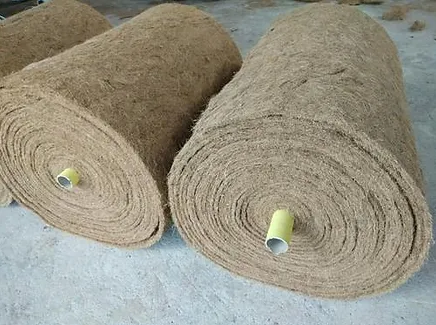Jute is a natural fiber that has been used for centuries to make a wide variety of products, including textiles, bags, and mats. It is a strong and durable fiber that is also biodegradable and sustainable. Jute is grown in many tropical and subtropical regions of the world, and India is the largest producer of jute.
Jute manufacturers play an important role in the jute industry. They are responsible for processing the raw jute fibers into finished products. The manufacturing process involves several steps, including:
- Retting: The jute stalks are soaked in water to soften the fibers and separate them from the woody stems.
- Drying: The retted jute is dried in the sun or an oven.
- Baling: The dried jute is compressed into bales for easy transportation.
- Spinning: The jute fibers are spun into yarn using spinning machines.
- Weaving or knitting: The yarn is then woven or knitted into fabrics and other products.
Jute manufacturers must ensure that the jute products they produce are of high quality. Therefore, jute felt rolls, a type of jute product, are also made with the best quality jute fibers and follow the manufacturing process carefully. Additionally, jute manufacturers test their products regularly to ensure they meet the required quality standards.
Jute felt roll is a type of jute product that is made by rolling several layers of jute fabric together. Jute felt rolls are used in a variety of applications, including:
- Gasket material: Used as gasket material to seal joints and prevent leaks.
- Insulation: Used as insulation to keep homes and other buildings cool in the summer and warm in the winter.
- Soundproofing: Used to soundproof rooms and reduce noise levels.
Due to the versatility and affordability of jute felt rolls, they are a popular choice for various applications.
Jute yarn price varies depending on several factors, including the quality of the jute fibers, the manufacturing process used, and the current market conditions. However, jute yarn is generally a very affordable material.
Factors Influencing Jute Yarn Prices
The price of jute yarn is a topic of interest for many in the Indian textile sector. Several factors contribute to the fluctuations in jute yarn price, and understanding these variables is essential for both manufacturers and consumers.
Jute Crop Health: The health of the jute crop significantly impacts yarn prices. A healthy jute crop leads to higher yields, resulting in a more abundant supply of raw materials, which can stabilize or even reduce prices.
Government Policies: Government policies and regulations, such as minimum support prices (MSP) and export restrictions, can influence jute yarn prices. Subsidies and export limitations can create price volatility.
Global Demand: International demand for jute products affects yarn prices. Increased demand from overseas markets can increase prices, especially for high-quality jute yarn.
Labor Costs: Labor-intensive processes are involved in jute harvesting and yarn production. Fluctuations in labor costs can directly impact the final price of jute yarn.
Environmental Factors: Natural disasters, like floods or droughts, can damage jute crops, leading to supply shortages and price spikes.
Innovation in Processing Techniques: Improvements in processing technologies can lead to more cost-effective production, potentially influencing jute yarn prices.
Exchange Rates: Currency exchange rates can impact the cost of jute yarn, especially for importers and exporters.
The Eco-Friendly Advantage
One of the standout qualities of jute felt rolls is their eco-friendliness. In an age where sustainability is paramount, jute is a natural and biodegradable resource. It decomposes easily, making it an excellent choice for environmentally conscious consumers and manufacturers.
Jute cultivation also benefits the environment. Jute plants absorb high levels of carbon dioxide during their growth, helping to combat climate change. Furthermore, jute is primarily rain-fed, reducing the need for excessive irrigation.
The Future of Jute Manufacturing in India
As India continues to embrace eco-friendly practices and sustainable solutions, jute manufacturing is poised for growth. Using jute felt rolls in various applications, coupled with the increasing demand for eco-conscious products, creates a promising future for the jute industry.
Investment in research and development to improve jute processing techniques and product innovation is essential. This will not only enhance the quality and versatility of jute products but also help manage and stabilize jute yarn prices.
Summing It Up
India’s jute manufacturing industry has a promising future, with a growing focus on sustainability. As the world seeks environmentally-friendly alternatives, jute’s versatility and eco-conscious attributes make it a valuable asset in the textile sector. To capitalize on this potential, the jute industry must continue to adapt, innovate, and promote sustainable practices.
Indian jute manufacturers are leading the way in producing high-quality natural fibers that will shape a greener and more sustainable future.

